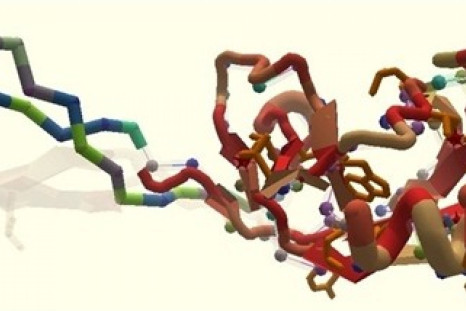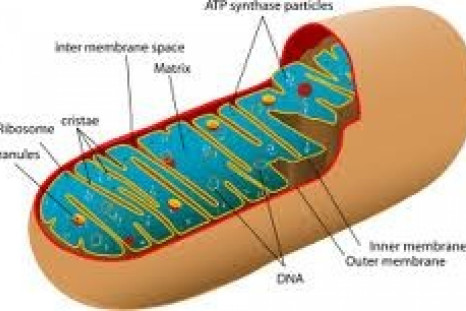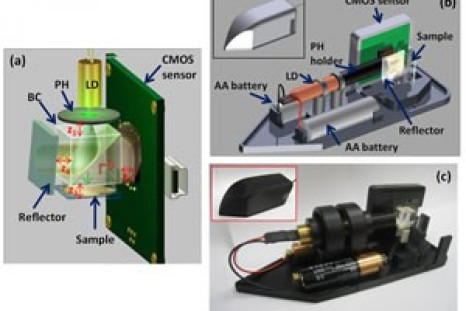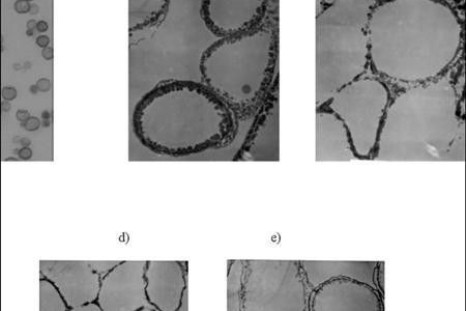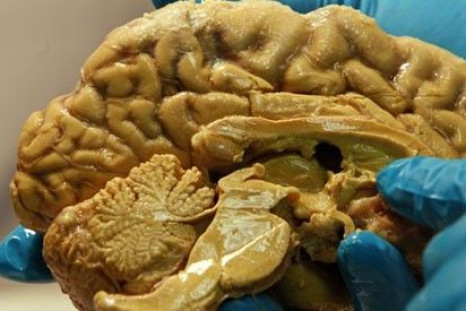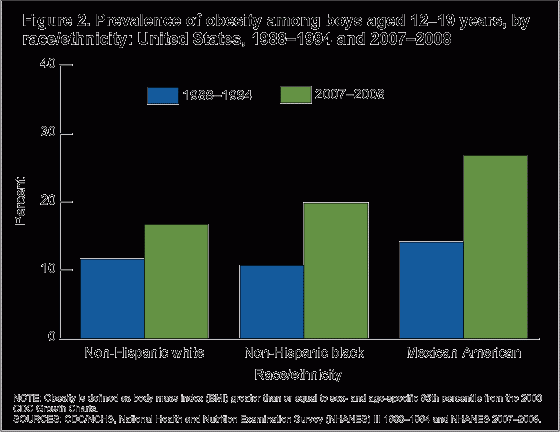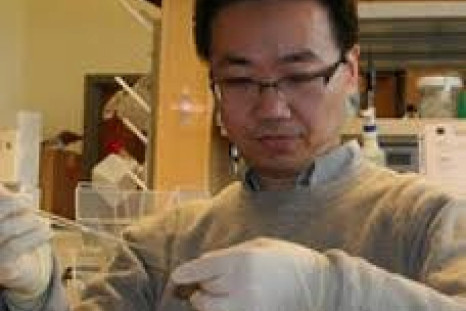Computerized Text Analysis to Track Killer Instincts in Psychopaths
The next time you're in the mood to narrate a murder-mystery, be wary of the words you use. Scientists and language researchers from Cornell University, NY, suggest that psychopaths are more likely to use certain word patterns than others, thereby revealing their killer instincts.
UK Scientists Develop Tests to Spike Makers of Designer Stimulants
UK scientists at Strathclyde and the James Hutton Institute are developing tests for tracing unidentifiable source of the raw materials in designer 'legal high' drugs. Using isotope ratio mass spectrometry (IRMS) technique, UK researchers have attempted to reveal the course of a drug's manufacturing procedure which is expected to track the and gather information on manufacturers of bath salts or so-called ‘designer drugs’.
U.S. Regulators Backtrack on Junk Food Ads for Kids
U.S regulators announced at a House of Representatives hearing on Wednesday that they will now back off on junk food marketing guidelines put forth by the government earlier this year. The final guidelines would now restrict food ads to be targeted only at children under 12 years and not 17 as proposed earlier.
Greens Can Alter Gene Linked to Heart Disease: Study
Canadian researchers have discovered that eating raw vegetables and fruits can actually modify a gene that is, perhaps, the strongest indicator of heart diseases.
Global Warming Makes Chocolate Dearer
New findings by the International Centre for Tropical Agriculture (CIAT) reveals that if preventive measures are not taken, the annual temperature increases and changing rainfall patterns would most likely hamper crop production efforts in West Africa, which currently supplies half of the world's cocoa produce.
Swedish Chocolate Found to Cut Stroke Risk In Women
A new Swedish study has reaffirmed the super fruit status of chocolate that could reduce incidence of stroke in women. But it warns that because Swedish chocolate contains higher concentrations of cocoa compared to U.S. chocolate, the study results might not translate the healthy benefits of chocolate in women in the U.S.
WHO Outlines Action Plan for Mental Health
The World Health Organization (WHO) has pegged a per capita investment of US $3 to $ 4 for managing mental health as part of its initiative on World Mental Health day. 2011 commemorates the 20th year of World Mental Health day and this year’s campaign focuses on, Investing in mental health”, noting that financial and human resources allocated for mental health are inadequate especially in low resource countries.
A Tribute to Visionary Cardiologist John T. Shepherd
Dr. Michael Joyner, associate dean for research at Mayo Clinic in Rochester, Minn. pays his tribute to John T. Shepherd, cardiovascular physician who also headed the American Heart Association, served as a NASA adviser and led U.S. scientific exchanges with the Soviet Union during the Cold War, died last Tuesday. He was 92.
Ancient Silky Lacewing Insects Fossil Discovered
Researchers have stumbled upon fossil remains of the 120-million-year-old ancient silky lacewings insect from Mesozoic origins of China.
iPhone, iPad App to Convert SmartPhone Into Mobile Medical Monitor
Researchers at the Worcester Polytechnic Institute (WPI) have devised a smart option that uses an iPhone app to convert a Smart Phone Into a Medical Monitor. The researchers intend to eventually adapt tablet devices, into sophisticated medical monitors that would capture and transmit vital physiological data.
Spanish Researchers Claim Most Effective HIV Vaccine Yet
Spanish medical researchers say they have developed an HIV vaccine prototype that is the most potent weapon against the deadly virus yet.
Women Have Genetically Stronger 'X-Factor' Than Men – Study
Scientists have given a new meaning to the X chromosome factor makes the female of the species more robust than their male counterparts. The new study says that women are also less likely to develop cancer.
Scientists Devise a Protein Switch That Trigger Cancer Cells to Self Medicate
The damaging impact of chemotherapy on healthy cells can now be combated using a protein switch that initiates cancer cells to produce their own anti-cancer medication.
New Computational Analysis Forecasts New Targets to Control HIV
Computational scientists have forecasted the presence of numerous human proteins that are required by the human immunodeficiency virus (HIV) to replicate itself. These, constitute a powerful resource for experimentalists who desire to discover new targets for human proteins that can control the spread of HIV, noted study authors.
Scientists Suggest Anti-Aging Stem Cell Therapy for Chronic Diseases
Scientists at the Buck Institute for Research on Aging and the Georgia Institute of Technology have shown they can turn back the biological clock in human adult stem cells, which helps regenerate old or damaged tissues.
Blood Test can Help Diagnose Heart Attack: Researchers
Researchers at the Loyola University Chicago Stritch School of Medicine believe that a possible new blood test could help diagnose heart attacks.
More Than a Sleep Indicator, Yawning Cools the Brain Naturally
In a landmark discovery, yawning has literally been linked to hot-headedness. A study by Princeton University's Department of Ecology and Evolutionary Biology explains that while yawning frequencies are seasonal, people are less likely to yawn when the heat outdoors exceeds body temperature.
Breakthrough For Retroviral Drug Design As Gamers Unfold Elusive Enzyme Structure
In an extraordinary breakthrough, online game players have pieced together the molecular structure of the mysterious retrovirus enzyme that has baffled scientists for more than a decade. This is the first case in which researchers and gamers have teamed up together to solve an age-old scientific problem.
Smoking Cessation can Improve Young Adults’ Personality: Study
Kicking the butt might be a good idea for young adults as they develop positive behavioral patterns according to a recent study released by the University of Missouri researchers.
USC Links Enzyme Depletion to Ageing
A recent study finding by biologists at the University Of Southern California (USC) might help to explain why humans lose energy with age. One benefit of the study would lead to pathways for developing medicine, new diets or pharmaceuticals that might help to slow the aging process. In the new study, USC scientists have revealed that as human cells grow older, there is a greater decline in the availability of an enzyme, called Lon protease.
UCLA Develops Palm-Held Portable Microscope For Healthcare Access
Researchers at the University of California (UCLA) have built an on the go compact, light-weight, dual-mode microscope that is not only portable but also efficient. The prototype dual-mode microscope uses holograms instead of lenses as in the case of a traditional microscope. Published in the Optical Society's (OSA) open-access journal, Biomedical Optics Express, the UCLA researchers explain that the prototype not only weighs the same as a medium-sized banana but also fits within the ...
Doctors Report Improving Prediction of Cancer Survival Rates
A new prognostic model may predict whether patients with advanced cancer are likely to survive for days, weeks or months, researchers say.
Radio-Protective Melanin Viable For Space Science
Researchers at the U.S. Department of Energy's Savannah River National Laboratory (SRNL) have studied aspects of melanin’s radio-protective properties, which is a breakthrough for future biomimetic material. Scientists are now probing melanin’s self-restorative and radio-protective properties for space science.
Usefulness of Grim Anti-Smoking Warnings Doubted
Mandatory anti-smoking warnings on U.S. cigarette packs are being challenged, this time by researchers who say the combination of grotesque images and explicit messages may not be effective in curbing smoking.
Studies Warn on Dangerous Liaisons in Drug Supply Chain as Shortages Loom Large
The U.S. healthcare sector is being challenged by a surge in gray market drug deals and illegal online pharmacies.
Addiction Redefined As Chronic Brain Disorder, Not Bad Behavior
Can't let go of that one pint of lager? What then is the reason behind such compulsive drinking bouts? Scientists have now redefined addiction as a case of brain disorder, so beware!
Brown Fat Found in Thin Children Could be the New Antidote to Obesity: Study
New findings by researchers at the Joslin Diabetes Center and Children's Hospital Boston have shown the presence of a type of "good" fat or "brown" fat that might be able to combat the obesity and diabetes epidemics. Researchers foresee this new revelation as a tool to combat childhood obesity.
Study On Organic Poultry Hopes To Trigger A Wakeup Call For U.S. Regulators
Organic agriculture, long seen as the best foot forward for supporting good health has now found new proof in a recent study that expects to reduce existence of drug-resistant bacteria on U.S. farms that "go organic".
Breakthrough 'Buddy' Virus to Wipeout AIDS Virus
Tagging the HIV virus with a new viral vector; the subject of a new research has aroused much interest in the quest to find the ultimate cure for HIV induced AIDS. Healing victims of HIV could perhaps find a new meaning from this new study conducted by Dr Pin Wang of the USC (University of South California) Viterbi School of Engineering.
Dementia in Older Women Linked to Sleep Apnea
A recent study relates irregular breathing as a measure of oxygen deficiency during sleep, leading to memory loss at later stages.














